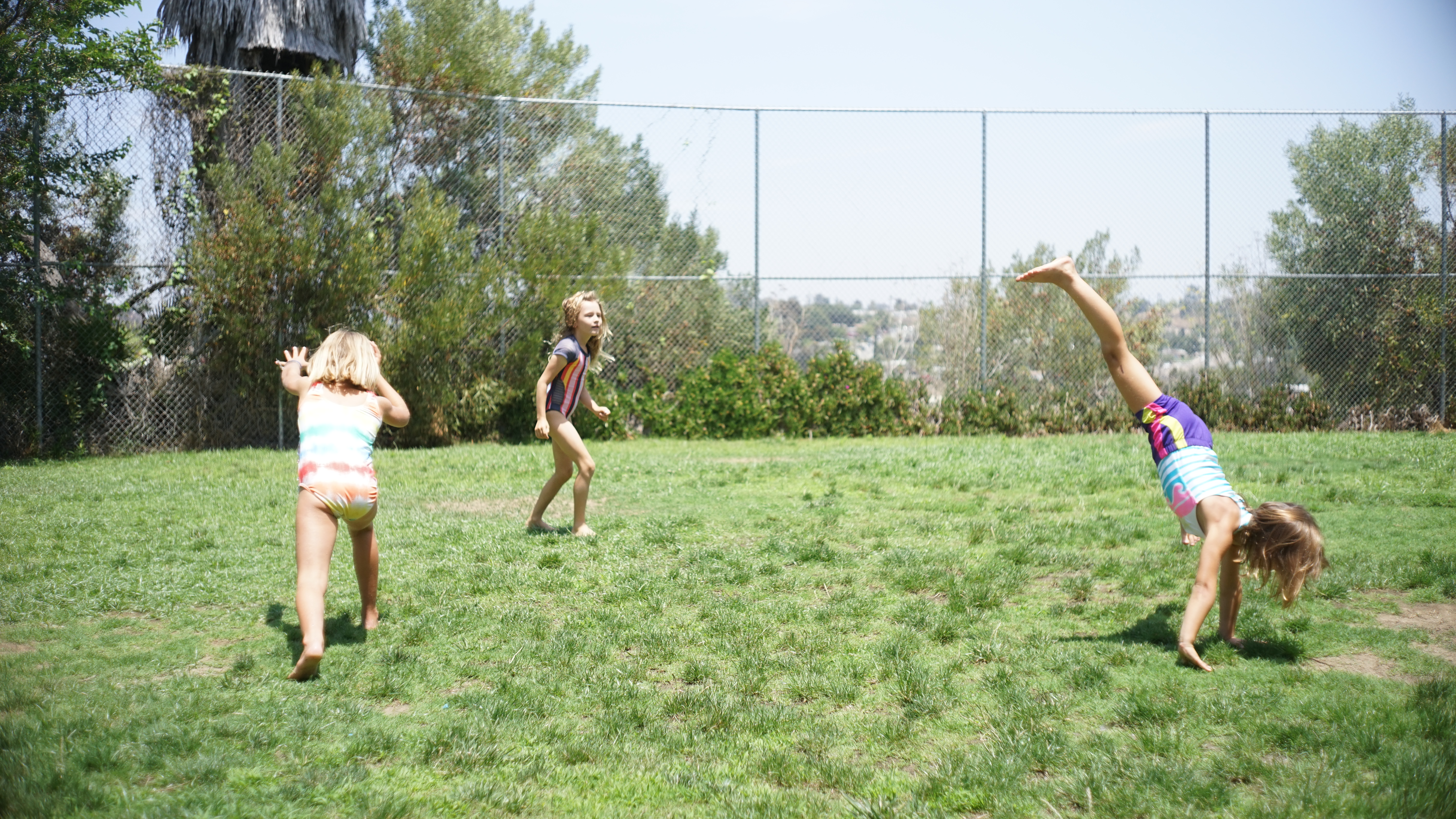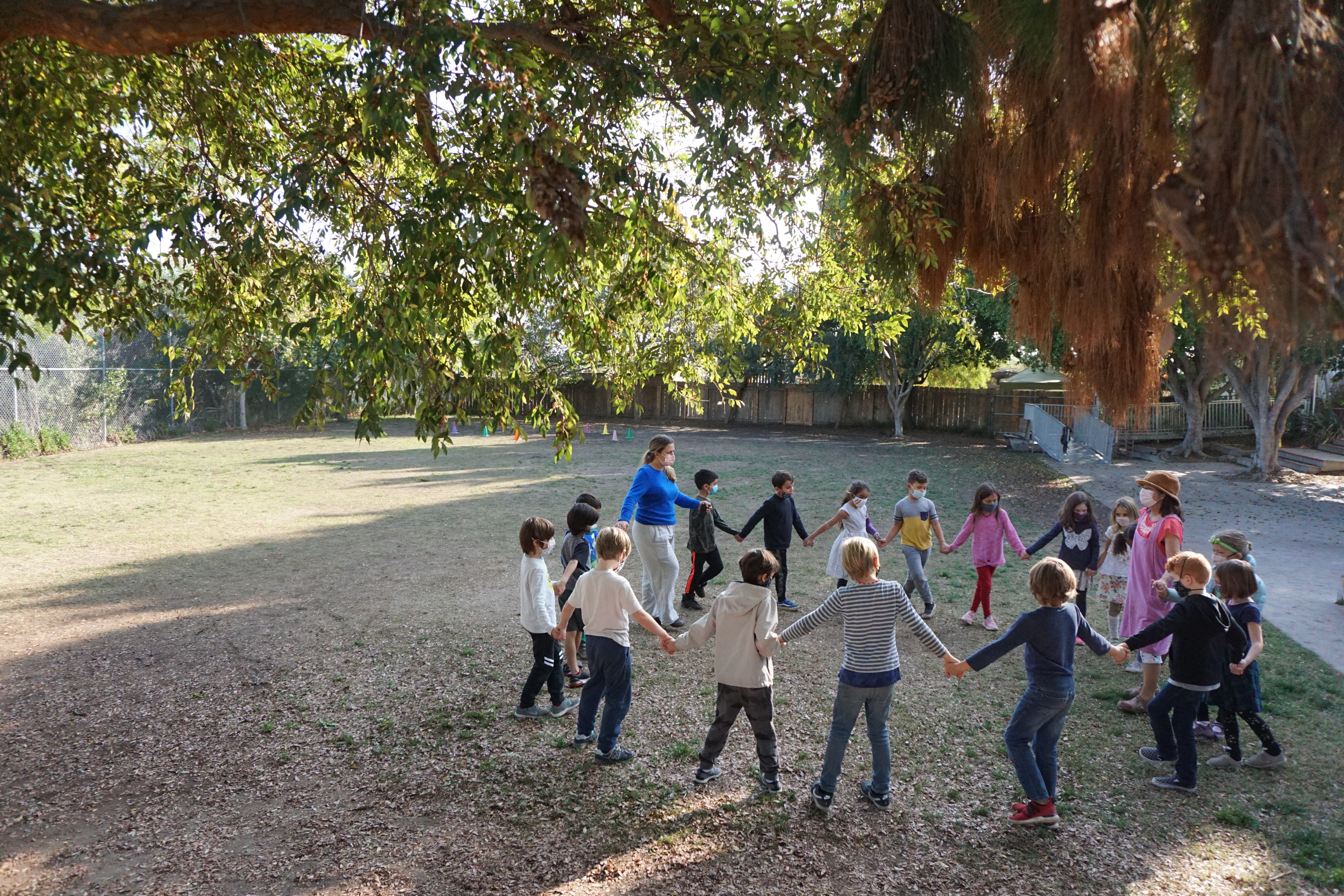Ms. Carmichael kindly shared some of her notes from her recent podcast episode to address this popular topic.
Creating a Summer Rhythm at Home: Preparing for a Waldorf Education in the Fall | Mary Carmichael
SEVEN BASICS for Summer Planning
- When discipline or guidance and boundaries are needed, keep in mind he stages of development- 0-7 imitation, 7-14- authority.
- Show younger children, lead them by imitation and use your words or songs for transitions.
- Later, they are looking for an authority, someone who will gently, consistently , and wisely lead them.
- Pre-teens and middle school children are watching your example ( with often a critical eye ???? ) and still need boundaries to test; still needing to know you’re the guide, but knowing you’re willing to hear their perspective. Appropriate concessions may be made as long as family values are maintained.

- All ages benefit from an established daily and weekly rhythm of- in-breath and out-breath
- Daily: outside time-active time and quiet play, and regular rest. Young and older children appreciate a quiet evening walk of star gazing.
- Weekly events: park day, beach day, gardening day, chore day, play-date day
- Rhythms are more challenging with middle school children, but holding to things like a family dinner hour are important and provide times to share and check in with each other. Board game nights , or dessert days are other ways to stay connected.

- Protection of the Senses
- The small child has NO FILTER. This is why the small child does not need “field trips” or stimulating places, events, and activities and benefits from repetition and warmth and simply being at home.
- All ages need the protection of the senses! (Quiet downtime, and only age-appropriate or necessary screentime).
- Everyone benefits from the BEACH! It is a sensory and motor playground. Make it part of your weekly rhythm.
- Healthy movement is easy in the summer: hikes, kayaking, fishing, swimming, gymnastics, and rock-climbing. Balance activities are not just fun but lead to the ability to find an inner stillness as well.
- Encourage healthy eating: cooking together, growing food in the garden, or learning to cook (ask your child to say their school snack blessing at mealtimes). Teens may want to plan the menu and cook for you.

When limits are truly received, accepted and learned, all of society is strengthened by young adults who are prepared to be responsible citizens.
Rudolf Steiner gave six exercises that are fundamental to the work of inner development.
No. 1 – The Control of Thought
The first exercise has to do with the control of thinking. It is designed to keep our minds focused in order to strengthen our meditative work. There are several versions of this exercise.
Select a simple object – a pin, a button, a pencil. Try to think about it exclusively for five minutes. You may think about the way the object is manufactured, how it is used, and what its history is. Try to be logical and realistic in your thinking. This exercise is best if practiced faithfully every day. You may use the same object every day or a new object each day, as you choose. (Start with only a minute a day and build.)
No. 2 – The Control of Will
Choose a simple action to perform each day at a time you select. It should be something you do not ordinarily do; it can even be a little odd. Then make it a duty to perform this action at that time each day. Rudolf Steiner gives the example of watering a flower each day at a certain time. As you progress, additional tasks can be added at other times.
This exercise is as hard as it is simple and takes a very strong intention to complete. To start, you might think of it as you think of a dentist’s appointment – you do not want to be late. It can be helpful to mark your success or failure on the calendar each day. If you completely forget at the time but remember later, do it then and try to do better the next day.
No. 3 – Equanimity
The third exercise is the development of the balance between joy and sorrow, pleasure and pain, the heights of pleasure, and the depths of despair. Strive for a balanced mood. An attempt should be made not to become immoderately angry or annoyed, not to become anxious or fearful, not to become disconcerted, nor to be overcome by joy or sorrow. Rather should your natural feelings be permitted to be quietly felt? Try to maintain your composure. This leads to inner tranquillity and purer feelings of the soul. Also, try using this to encourage ACTIVE LISTENING to the other.
No. 4-Positivity
This exercise is the development of a positive attitude to life. Attempt to seek the good, praiseworthy, and beautiful in all beings, all experiences, and all things. Soon you will begin to notice the hidden good and beauty that lies concealed in all things. This is connected with learning not to criticize everything. You can ask how something came to be or to act the way it is. One way to overcome the tendency to criticize is to learn to ‘characterize’ instead.
No. 5- Open-mindedness
For this exercise, make an effort to confront every new experience with complete open-mindedness. The habit of saying, “I never heard that” or “I never saw that before” should be overcome. The possibility of something completely new coming into the world must be left open, even if it contradicts all your previous knowledge and experience. Again, utilize this in conversation. What a game-changer it can be!
No. 6 Combining the Above
If you have been trying the earlier exercises of thinking, will, equilibrium, positivity, and open-mindedness, you are now ready to try them two or three at a time, in varying combinations until they become natural and harmonious.
Adapted from: https://leadtogether.org/six-basic-exercises-esoteric-development-rudolf-steiner/




0 Comments